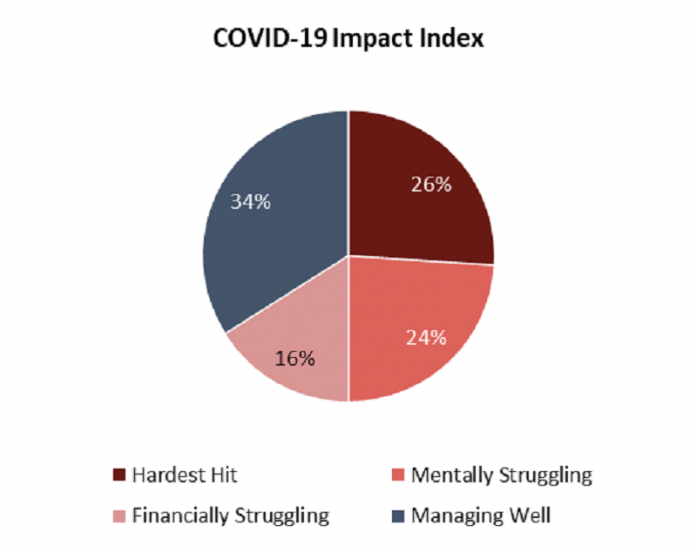MENTAL health has been one of the most consistent undercurrents of discussion around the impacts of this country’s COVID-19 pandemic.
To what extent have job losses, illness, uncertainty and self-isolation affected the emotional and psychological well-being of Canadians? How are they bearing up? What are they feeling?
Now, a new study from the non-profit Angus Reid Institute is able to answer those questions more fulsomely. New data paint a picture of a nation whose optimism and resilience has been literally depressed by the events of the last month-and-a-half.
Half of Canadians (50%) report a worsening of their mental health, with one-in-ten (10% overall) saying it has worsened “a lot”.
Asked to describe how they have been primarily feeling in recent weeks, Canadians are most likely to say they’re worried, (44%), anxious (41%) and bored (30%), although fully one-third (34%) also say they are “grateful”.
The combination of deteriorating mental health and ongoing financial troubles at the household level creates a portrait of how the nation is faring through the crisis. Canadians fall into four main categories as part of the Angus Reid Institute’s COVID-19 Impact Index: those who are Managing Well mentally and financially, those who are Mentally Struggling, or Financially Struggling, and those who are Hardest Hit, feeling the effects of both factors worse than anyone else.
More Key Findings:
- At least one-in-five residents in each region of the country fall into the Hardest Hit category. Alberta has the highest number (32%) and Quebec the lowest (20%).
- One-quarter (24%) of the Hardest Hit say that their relationships at home have suffered since the COVID-19 outbreak began, compared to just six per cent of those in the Managing Well group.
- Regardless of where they place on the COVID-19 Impact Index, three-quarters of Canadians in each group agree that it is too soon to begin lifting restrictions on businesses and public gatherings in their province













